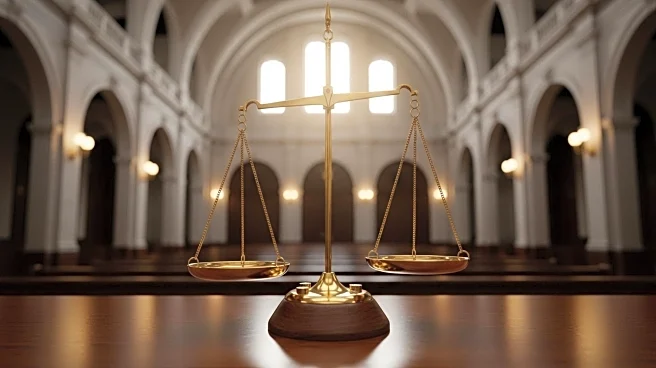What is the story about?
What's Happening?
Justice Samuel Alito has recused himself from a Supreme Court case involving Laura Loomer, a far-right personality and ally of President Trump, who filed a lawsuit against social media companies. The case, which the Supreme Court declined to hear, involves allegations that companies like Meta and X violated civil racketeering laws by banning Loomer from their platforms. Alito's recusal is likely due to his ownership of stock in Procter & Gamble, a defendant in the lawsuit. The case highlights ongoing tensions between social media platforms and individuals claiming censorship and bias.
Why It's Important?
Alito's recusal underscores the ethical considerations Supreme Court justices must navigate, particularly in cases involving potential conflicts of interest. The case itself reflects broader debates over the power of social media companies and their role in moderating content, especially concerning political figures and controversial personalities. Loomer's lawsuit raises questions about free speech, corporate influence, and the legal protections afforded to social media platforms under Section 230 of the Communications Decency Act. The court's decision not to hear the case leaves unresolved issues about the extent of platform liability and user rights.
What's Next?
With the Supreme Court declining to hear the case, the lower court's dismissal of Loomer's claims stands. This outcome may influence future legal strategies for individuals challenging social media bans and could prompt legislative efforts to address perceived biases in content moderation. The case also highlights the need for ongoing discussions about the balance between free speech and platform regulation, as well as the ethical standards governing Supreme Court justices.
















